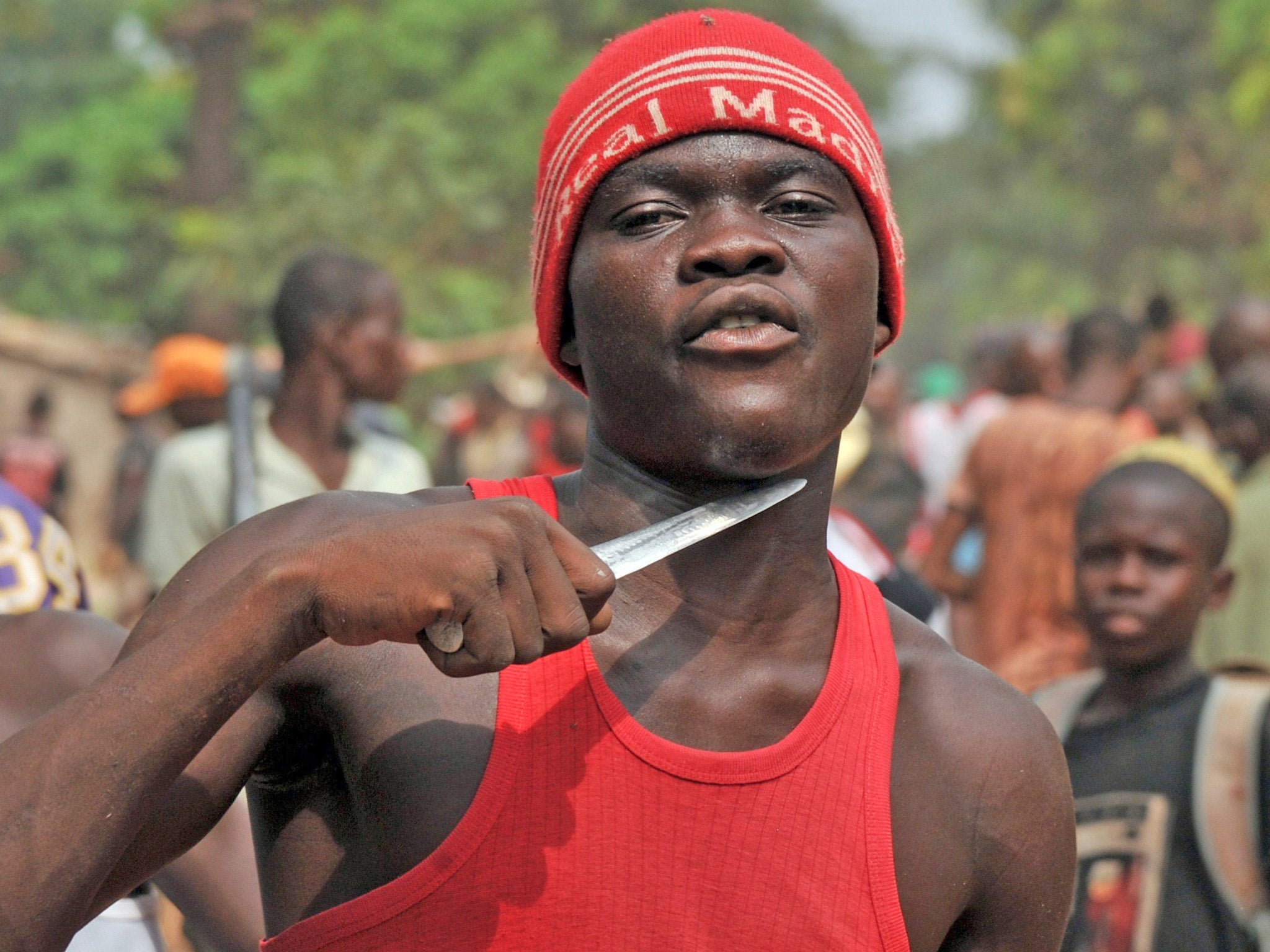Murder, mutilation and mob rule: Life in Central African Republic is hell on earth
Ethnic cleansing is being carried out against Muslims and there are not enough peacekeepers to stop it

The body of a 10-year-old boy, shot dead, whose hand had been cut off with a machete. The remains of the sons of a 76-year-old man, who narrowly escaped death after anti-balaka Christian militia fighters shot him three times and left him for dead. The lifeless body of a six-month-old baby, brutally murdered alongside 12 of her relatives in front of her cousin, who was forced to witness her own father being decapitated. This is what I have seen of life in the Central African Republic.
Over the past few weeks, I have travelled around the country as part of an Amnesty International crisis response delegation. We visited the capital, Bangui, and towns in the north-west of the country, investigating case after case of brutality and death. During our time here, hundreds of people, mostly Muslims, have been brutally murdered by Christian anti-balaka fighters.
The current situation is a result of the human rights crisis that began in 2012, when mostly Muslim Seleka forces launched an offensive that culminated in their seizure of power in March 2013, and the installation of Michel Djotodia as the country’s first Muslim President. In power for nearly 10 months, the Seleka were responsible for massacres, extra-judicial executions, rape, torture and looting, as well as and the destruction of Christian villages.
The resulting violence and forcible expulsion of Muslim communities were predictable. As the Seleka withdrew, the international peacekeepers deployed to the country failed to stop the anti-balaka militias taking control of town after town. What we are seeing now is the ethnic cleansing of Muslims, and a Muslim exodus of historic proportions.
Muslim-owned homes and shops have been looted and burnt and mosques reduced to rubble. The situation is now so desperate that tens of thousands have fled their towns.
“Everyone wants to leave,” a neighbourhood leader in Bouar in the west told me. “We’re all just waiting for the opportunity.”
Some flee by car or motorcycle, joining long convoys that are escorted out of the country by Chadian or international troops. Others carry what they can, jumping on dangerously overcrowded trucks. Some attempt to escape on foot, knowing that anti-balaka militias could attack them at any time.
On 16 January, for example, some 20 civilians were shot and hacked to death as they were trying to flee Bohong. In another case, anti-balaka fighters stopped a truck at a checkpoint in Boyali, forced all the Muslims to get off, and killed six members of a family.
Those lucky enough to make it out of CAR alive still face an extremely precarious future. The refugee reception centres in Chad are overcrowded; food and clean water is a luxury, shelter extremely hard to come by and medical care almost non-existent. Meanwhile, inside CAR, the deployment of 5,500 African Union troops and 1,600 French troops in the capital, Bangui, and towns to the north and south-west remains inadequate. Attacks happen every day.
For the tens of thousands of Muslims who have already been forced out of the country, it is too late, but others are still at risk. International peacekeeping forces must break the control of anti-balaka militias and station enough well-supported troops in towns where Muslims are threatened.
They must also be deployed to protect civilians in other parts of the country, notably to the east of the capital, where the former regime’s Seleka forces are now regrouping. Anything less will simply be disastrous.
Donatella Rovera is a senior crisis response adviser at Amnesty International
Subscribe to Independent Premium to bookmark this article
Want to bookmark your favourite articles and stories to read or reference later? Start your Independent Premium subscription today.

Join our commenting forum
Join thought-provoking conversations, follow other Independent readers and see their replies